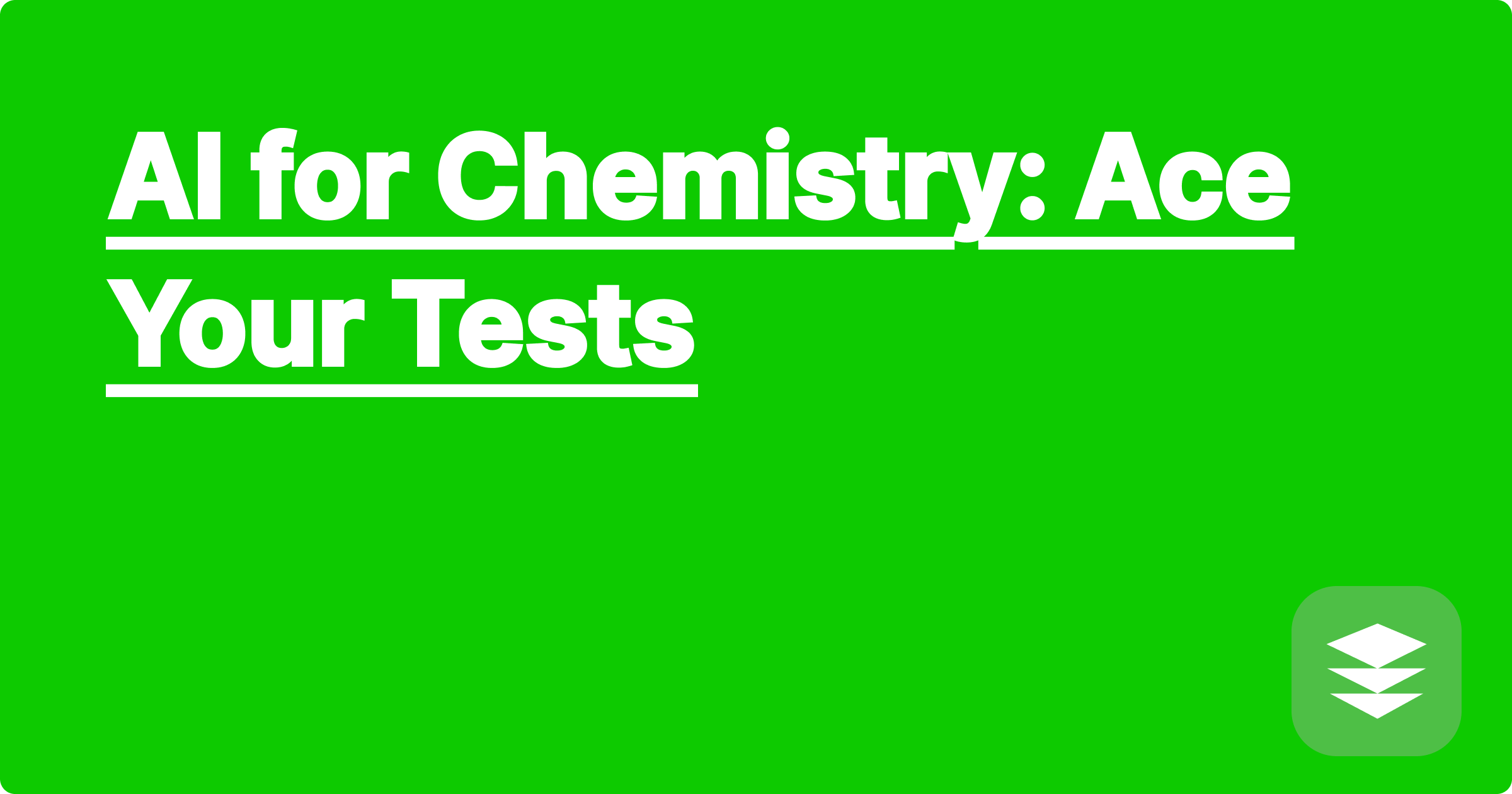
Chemistry, a cornerstone of STEM, presents a unique challenge: mastering vast amounts of interconnected information, from atomic structure to complex reaction mechanisms. This complexity can be daunting, requiring significant time and effort to grasp fundamental concepts and apply them effectively. Fortunately, the rise of artificial intelligence offers innovative solutions to navigate these challenges, providing powerful tools to enhance understanding, streamline learning, and ultimately, ace those chemistry tests.
This intersection of AI and chemistry education holds immense potential for STEM students and researchers alike. For students, AI tools can personalize learning experiences, providing targeted support and on-demand explanations. Researchers can leverage AI to analyze complex datasets, predict reaction outcomes, and accelerate scientific discovery. By embracing these advancements, both students and researchers can unlock new levels of efficiency and achieve academic and professional success.
Chemistry education often involves memorizing numerous facts, formulas, and reaction pathways. This rote learning approach can be inefficient and fail to foster genuine understanding. Students often struggle to connect disparate concepts and apply them to novel situations. Furthermore, traditional learning resources, such as textbooks and lectures, can sometimes lack the interactivity and personalized feedback necessary for effective learning. The sheer volume of information, combined with the abstract nature of some chemical concepts, can create significant hurdles for students striving to excel in their chemistry courses. Traditional study methods often involve repetitive practice problems and memorization, which can be time-consuming and may not lead to a deep understanding of the underlying principles.
Artificial intelligence offers a transformative approach to chemistry education. AI-powered tools, such as ChatGPT, Claude, and Wolfram Alpha, can provide personalized tutoring, on-demand explanations, and interactive learning experiences. These tools can adapt to individual learning styles and provide targeted support in areas where students struggle the most. For example, a student struggling with stoichiometry can use Wolfram Alpha to step through example problems, visualize the calculations, and receive immediate feedback on their work. ChatGPT and Claude can be used to generate practice questions, explain complex concepts in simpler terms, and even provide personalized study guides based on specific learning objectives.
Imagine you're struggling to understand the concept of Le Chatelier's principle. You can begin by asking ChatGPT or Claude to explain the principle in simple terms, providing analogies or real-world examples. Then, you can ask the AI to generate practice problems related to Le Chatelier's principle, varying the reaction conditions and asking you to predict the shift in equilibrium. As you work through the problems, you can ask the AI to provide feedback on your reasoning and identify any misconceptions. For more quantitative problems involving equilibrium constants, you can use Wolfram Alpha to perform the calculations and visualize the changes in concentrations. This interactive and iterative process allows you to actively engage with the material and develop a deeper understanding of the underlying principles.
Consider the reaction N2(g) + 3H2(g) ⇌ 2NH3(g). You could ask ChatGPT, "How would increasing the pressure affect the equilibrium position of this reaction?" The AI would explain that increasing the pressure shifts the equilibrium towards the side with fewer gas molecules, in this case, towards the formation of ammonia. You could then ask Wolfram Alpha to calculate the equilibrium constant (Kc) at a specific temperature given the initial concentrations of reactants and products. Furthermore, you could use these tools to explore the effect of temperature changes on the equilibrium, considering the exothermic nature of the ammonia synthesis reaction.
Another example involves organic chemistry. You might be struggling to understand the mechanisms of SN1 and SN2 reactions. ChatGPT or Claude can break down the steps involved in each mechanism, highlighting the differences in carbocation formation and nucleophilic attack. The AI can also provide examples of different substrates and nucleophiles and ask you to predict the preferred reaction pathway. This interactive approach can significantly enhance your understanding of reaction mechanisms and improve your ability to predict reaction outcomes.
To maximize the benefits of AI in your chemistry studies, focus on active recall and spaced repetition. Use AI tools to generate practice questions and test your understanding regularly. Space out your study sessions and revisit previously learned concepts to reinforce your knowledge. Don't be afraid to experiment with different AI tools and find the ones that best suit your learning style. Remember that AI is a tool to supplement, not replace, traditional learning methods. Continue to attend lectures, read your textbook, and engage in discussions with your peers and instructors. By combining the power of AI with effective study strategies, you can achieve significant improvements in your understanding and performance in chemistry.
In conclusion, AI offers a transformative approach to chemistry education, providing powerful tools to enhance understanding, streamline learning, and ultimately, achieve academic success. By embracing these advancements and integrating them into your study routine, you can unlock your full potential and excel in the challenging yet rewarding field of chemistry. Start exploring these AI tools today and discover how they can help you ace your next chemistry test. Don't hesitate to experiment and find the best strategies that work for you. The future of learning is here, and it's powered by AI.
AI for Chemistry: Ace Your Tests
AI Statistics Helper: Data Mastery
AI for CAD: Design Optimization
AI Essay Writer: STEM Research